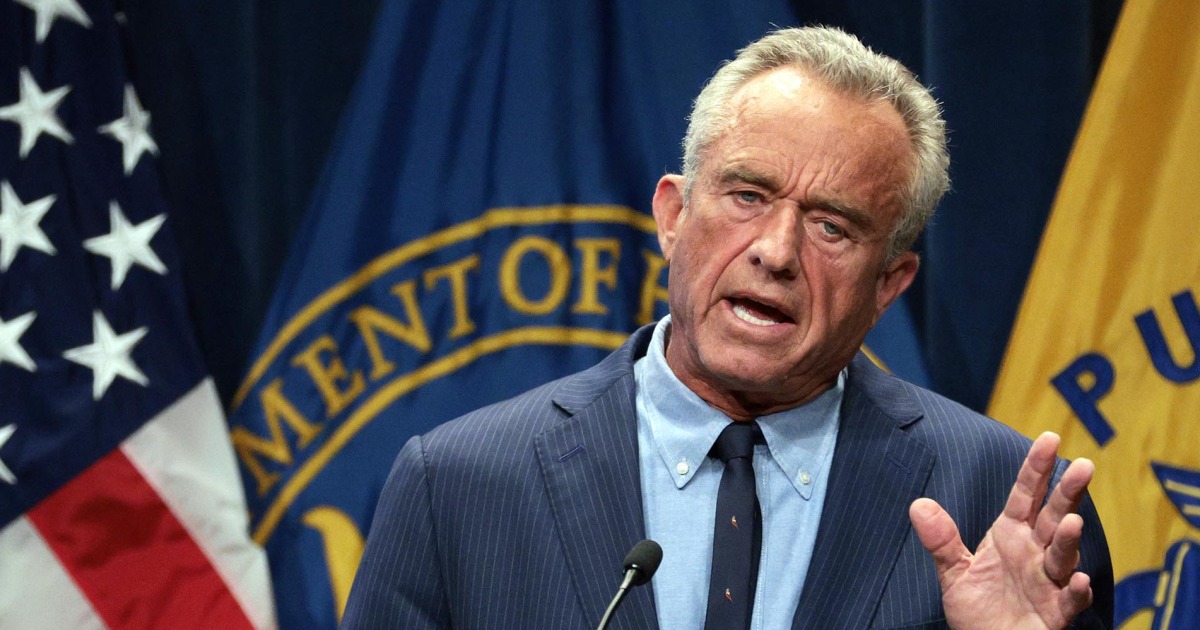The truth behind the dramatic rise in autism - and why the consequences could be catastrophic: DR LISA WILLIAMS READ MORE: Still think autism is a 'boy thing'? Wrong: we're vastly under-diagnosing girls and they're suffering as a result. Here are the signs to look for, by top neuroscientist GINA RIPPON By DR LISA WILLIAMS Published: 06:45 EDT, 25 April 2025 | Updated: 06:45 EDT, 25 April 2025 e-mail View comments Robert F. Kennedy Jr’s recent comments about autism have reignited debates on the topic, with the US Health Secretary labelling the disorder an ‘epidemic’ with a greater impact than Covid.
He’s far from the first person to use such terminology to describe what is happening with autism diagnoses and, actually, he’s not entirely wrong about the scale of the issue. But he is wrong about what’s truly driving skyrocketing numbers. Since 1998, there has been a 787 per cent increase in autism diagnoses in the UK.

There is an epidemic – not of autism itself, but of positive diagnosis. Robert F. Kennedy Jr has suggested previously that the rise in autism is linked to vaccines.
The real question we should be asking is not what the cause of the disorder is but, instead, what is contributing to out-of-control diagnosis rates. In 2025, many organisations are reporting diagnosis rates well above 80 per cent, meaning that for every ten people who walk through the clinic door, eight get a diagnosis. This raises serious concerns, as not everyone can have autism.
US Health Secretary Robert F. Kennedy Jr has called autism an 'epidemic' and blamed the rise in diagnoses on vaccines Autism isn’t suddenly more prevalent because more people are being born with it, or because we have ‘greater awareness’ of the symptoms – it’s mostly down to a dramatic rise in misdiagnosis. This has been fuelled by multiple factors, such as the use of unreliable online methods to diagnose and a distressed society that is struggling to cope without diagnosis or labelling.
We also see the erroneous application of genuine clinical concepts such as ‘autistic masking’. This is a strategy used by people with autism to cover up or camouflage the communication difficulties they experience, helping them ‘fit in’. For instance, people with autism may pretend to be ‘normal' in social situations – by reducing their fidgeting, not revealing their intense interests, or rehearsing what they will say, for instance.
We are seeing this characteristic being misused to justify giving diagnoses to people who do not have symptoms of autism – but who, for example, might be socially awkward. Another factor in the rise of diagnosis rates is that assessments are being carried out by people without the necessary qualifications and experience. Psychiatrists, paediatricians and psychologists are trained to complete diagnostic work, holding doctoral-level qualifications and working under statutory professional regulation to do so.
Yet we are increasingly seeing other practitioners giving diagnoses – cognitive behavioural therapists, teachers, assistant psychologists and social workers – who are simply not qualified to perform these assessments. Dr Lisa Williams is a clinical psychologist and founder of The Autism Service Autism diagnosis has become a lucrative commercial opportunity, thanks to many people looking to explain their difficulties via diagnosis. The NHS is now outsourcing millions of pounds worth of assessments per year to the private sector, with many providers prioritising profit over quality.
(With an absence of complaint – because too often the diagnosis sought is the diagnosis gained.) Autism is very real, but the system designed to support those with the disorder is buckling under the sheer number of people receiving a diagnosis, diverting care from those the service was ring-fenced for. What is needed is better gatekeeping of referrals, not more diagnosis.
Globally, there needs to be a shift in focus, away from outdated questions about causes and cures, and instead towards addressing the urgent problem of misdiagnosis, the integrity of diagnostic practices, and society’s requirement for labels for everything we experience. Long-term, the consequences of this could prove catastrophic for autistic people who rely on the support systems that are likely to collapse if action is not taken. Dr Lisa Williams is a clinical psychologist and founder of The Autism Service, a network of private clinics in England and Wales.
RFK Jr. Share or comment on this article: The truth behind the dramatic rise in autism - and why the consequences could be catastrophic: DR LISA WILLIAMS e-mail Add comment Comments 0 Share what you think No comments have so far been submitted. Why not be the first to send us your thoughts, or debate this issue live on our message boards.
Add your comment Enter your comment By posting your comment you agree to our house rules . Submit Comment Clear Close Do you want to automatically post your MailOnline comments to your Facebook Timeline? Your comment will be posted to MailOnline as usual. No Yes Close Do you want to automatically post your MailOnline comments to your Facebook Timeline? Your comment will be posted to MailOnline as usual We will automatically post your comment and a link to the news story to your Facebook timeline at the same time it is posted on MailOnline.
To do this we will link your MailOnline account with your Facebook account. We’ll ask you to confirm this for your first post to Facebook. You can choose on each post whether you would like it to be posted to Facebook.
Your details from Facebook will be used to provide you with tailored content, marketing and ads in line with our Privacy Policy ..
Health

The truth behind the dramatic rise in autism - and why the consequences could be catastrophic: DR LISA WILLIAMS

Robert F. Kennedy Jr's recent comments about autism have reignited debates on the topic, with the US Health Secretary labelling the disorder an 'epidemic' with a greater impact than Covid.















